|
|
This week in: Peace & Security Publications |
IPSI | Africa | Americas | East Asia | Europe & Central Asia | Middle East | South Asia
|
|
|
|
|
This week in Peace & Security Publications
|
|
|
|
|
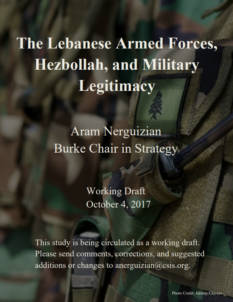
CSIS: The LAF and the Lebanese need countries like the U.S. and other donors and partners to maintain the current momentum of military assistance, especially as the LAF reorients itself and its mission sets after defeating ISIS in Lebanon. Within that, there are practical ways for the U.S. to…
|
|
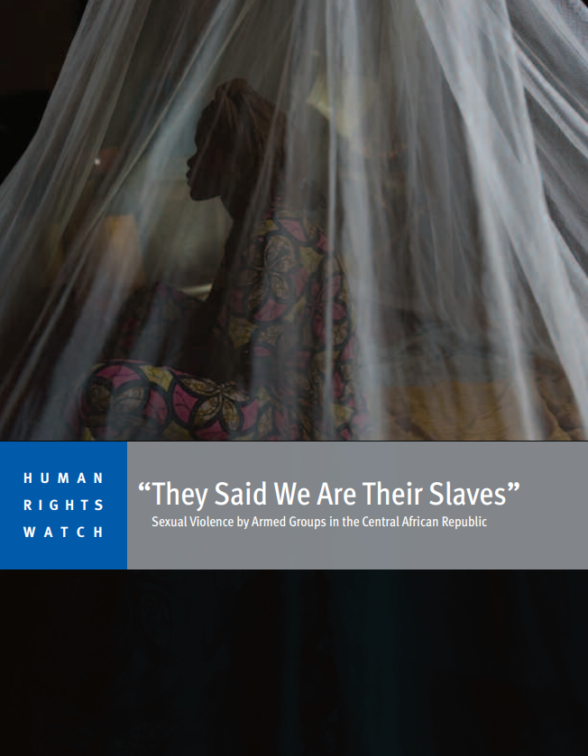
HRW: Since late 2012, the Central African Republic has been wracked by
bloody armed conflict in which civilians have paid the price. Armed
groups have brazenly violated the laws of war with impunity, attacking
civilians and civilian infrastructure, and leaving…
|
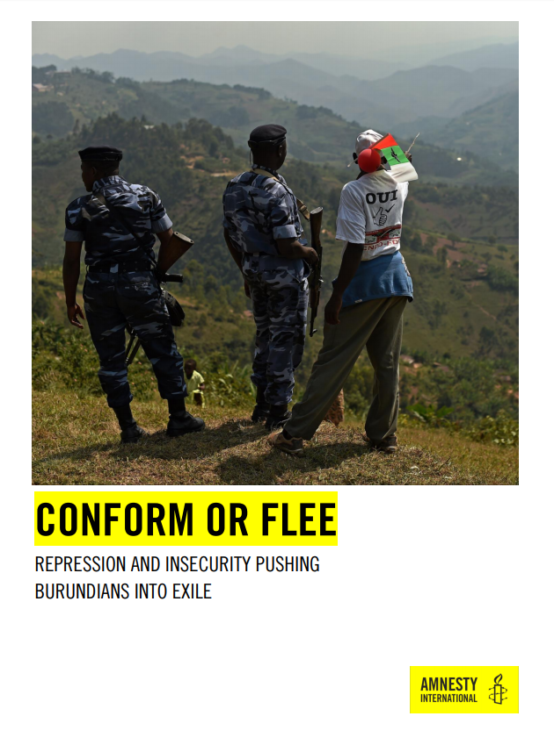
Amnesty International: Amnesty International’s research highlights the pervasive repression and continuing human rights violations throughout Burundi, more than two years after the start of the crisis in 2015. The lack of accountability for crimes committed by members of the police, SNR, army and the…
|
|
|
|
|
|
|

As a Strategic Partner in the RESOLVE Network, IPSI is proud to have had Cameron Chisholm facilitate the creative design sessions where the Strategic Partners determined the Network’s goals for the next two years. #CVEResearch #RESOLVEForum
|
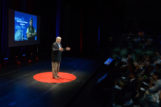
2015 Bologna Keynote Lieutenant-General Roméo Dallaire presents at TEDxConcordia in Montreal on influencing Canadian youth to get involved in global challenges and initiatives.
|
|
|
|
|
|
|
This week in Sub-Saharan Africa
|
|
|
|
|
CAMEROON: Separatist sentiment grips English-speaking regions
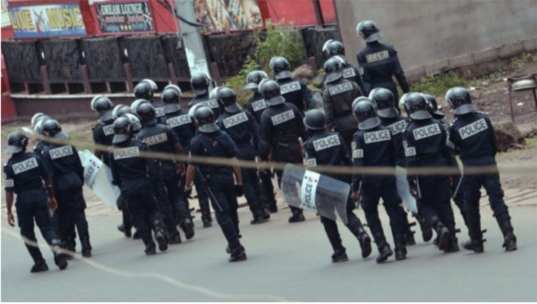 |
|
On Sunday, violence broke out after local groups called for public protests against perceived marginalization by veteran ruler President Paul Biyan’s Francophone-dominated government. Security forces opened fire, killing at least 17 people in the English-speaking parts of Cameroon, an area where a separatist movement is gathering strength. Demonstrators made a symbolic proclamation of independence by waving blue and white striped flags as part of their protest. Analysts have called on the United Nations and the regional bloc, ECOWAS, to intervene in the crisis, believing government-led dialogue would not solve the unrest in the region. Comment: Cameroon’s English speaking minority say they are being marginalized by the French-speaking majority. Dissent in the two Anglophone regions—the northwest and southwest parts of the country — has been growing over the past year, with protests taking place intensely. (Financial Times, Aljazeera, BBC)
|
|
|
|
|
|
DEMOCRATIC REPUBLIC OF CONGO: Violence drives thousands into Zambia
On Tuesday, the UN Refugee Agency (UNHCR) reported that unrest in the southern part of the Democratic Republic of the Congo has driven more than 3,360 refugees into northern Zambia since August 30. The majority of those fleeing come from the northern Katanga and Tanganyika regions. In recent years, these areas have been the scene of multiple deadly clashes between the Pygmies and Bantus from the ethnic Luba group. The new arrivals, who bring the number of Congo refugees and asylum seekers in Zambia to around 27,300, are mostly being taken to the Kenani transit Centre in the Nchelenge district, 90km from the border. Comment: People are escaping interethnic clashes as well as fighting between Congolese security forces and militia groups. (Aljazeera, The Guardian, Mail Guardian)
|
|
|
|
|
|
SOUTH AFRICA: Soweto gay pride parade march against hate crimes
On Saturday, more than 200 people took to streets of Soweto to celebrate their annual Soweto Pride parade. Members of gay community marched through meadowlands and Dobsonville neighborhoods in Soweto, protesting against hate crimes against the gay community. The theme this year was “Reclaiming Our Rights to Organize,” after Soeto Pride was canceled in 2016. Comment: In 2016, Johannesburg police department increased the risk level of the event from “low” to “medium” risk, resulting in Pride organizers having to pay an additional USD 10,709 for the increased security measures. The Forum for the Empowerment of Women accused authorities of using the increased security costs to discourage the event from taking place. (All Africa, Mamba News, Waging Non Violence)
Researched/Written by Brian Adienge
|
|
|
|
|
|
This week in the Americas & Caribbean
|
|
|
|
|
COLOMBIA: Ceasefire begins between government and ELN guerrilla group
On Sunday, the Colombian government and the National Liberation Army (ELN) reached a ceasefire. The ceasefire will last for 101 days, until January 9, 2018, with the ELN agreeing to not engage in kidnappings, recruitment of minors, nor attacks on infrastructure; the government agreed to improve prison conditions for 450 rebel prisoners and to protect community leaders. The United Nations stationed monitors throughout Colombia to monitor the ceasefire, with assistance from the Roman Catholic Church. Comment: Failed peace talks between the Colombian government and ELN took place in Cuba (2002) and in Venezuela (2007). Negotiations to reach the current ceasefire took eight months. (Al Jazeera, BBC News, Reuters)
|
|
|
|
|
|
Cuban diplomats expelled from the U.S. over sonic attacks
On Tuesday, President Donald Trump expelled 15 Cuban embassy officials from the U.S., giving them seven days to officially leave the country. This expulsion follows reported sonic attacks targeting U.S. diplomats in Havana earlier this year. The U.S. Department of State stated that removing the 15 Cuban diplomats would achieve parity in embassies both in Washington and Havana. Secretary of State Rex Tillerson acknowledged that the decision was made to protect diplomats as outlined in the Vienna Convention. Comment: Cuban officials commented on the removal of the diplomats, stating that the decision was “hasty” and “irresponsible.” Cuban Foreign Minister Bruno Rodriguez said in a news conference that the Cuban government denies any wrongdoing. (Cuba Journal, Havana Times, The Guardian, The New York Times)
|
|
|
|
|
|
UNITED STATES: Administration criticized for opposing UN resolution condemning use of capital punishment
On Tuesday, the United States voted against a UN Human Rights Council resolution condemning the use of capital punishment on those prosecuted for engaging in same-sex relationships. Additionally, the resolution condemned the use of the death penalty for people with mental or intellectual disabilities, persons under the age of 18, and pregnant women. Although the vote was successfully passed, the U.S. joins China, Saudi Arabia, and Iraq in its opposition. Comment: The UNHRC resolution had 27 in favor, 13 against and seven abstentions. The U.S. has since explained their position, stating they are disappointed that the resolution does not reflect states who lawfully use capital punishment. (Human Rights Campaign, The Independent, The Telegraph)
Researched/Written by Blessing Ikpa
|
|
|
|
|
|
This week in East Asia & Pacific
|
|
|
|
|
CAMBODIA: Opposition parliamentarians flee country for safety
On Tuesday, deputy president of the Cambodia National Rescue Party, Mu Sochua, fled Cambodia after Prime Minister Hun Sen directly threatened her and her colleagues for allegedly conspiring to overthrow the government; more than 20 of the 55 opposition parliamentarians have fled the country in the past month. According to the party’s deputy chief for public affairs, Sochua received a warning of imminent arrest from an interior ministry official. Comment: Kem Sokha, the opposition party president, was arrested on September 3 for treason after a video surfaced of him speaking with American pro-democracy advocates. (Channel News Asia, Reuters 1, 2, AP)
|
|
|
|
|
|
EAST TIMOR: First minority government since 2002 gains majority in election
On Tuesday, President Francisco “Lu Olo” Guterres swore in the remaining cabinet members of the first minority government since East Timor’s independence in 2002. The new administration plans to focus on improving living conditions, avoiding political upheaval, and lifting flagging oil productions. Comment: The minority government came into power after gaining 30 seats in the 65-seat Parliament. Alkatiri was East Timor’s first prime minister following independence; he stepped down in 2006 under public pressure for his decision to fire 600 soldiers. His Fretilin party won the most votes in July’s election, but failed to achieve an outright majority. (The Diplomat, Press Release Point, Reuters)
|
|
|
|
|
|
SOUTH KOREA: Agrees to renegotiate free trade pact of 2012 with U.S.
On Wednesday, the U.S. and South Korea agreed to renegotiate a bilateral free trade agreement following U.S. administration complaints about the widening trade deficit between the two countries. South Korea’s Ministry of Trade, Industry, and Energy claims both countries understand the need to further strengthen mutual benefits. Comment: The U.S.-South Korea free trade agreement, effective since March 2012, removed tariffs on more than 90 percent of traded items. (South China Morning Post, Radio Pakistan, CNBC, Bloomberg)
|
|
|
|
|
|
REGIONAL: World Bank raises growth forecast of East Asia and Pacific
On Wednesday, the World Bank raised its economic growth forecast for East Asia and Pacific. The report said the region will maintain an improved external environment and strong domestic demand; however, risks arise from increasing trade protectionism and economic nationalism, especially between the U.S. and North Korea, which can negatively impact global trade and escalate geopolitical tensions. Comment: The World Bank now expects the region to grow 6.4 percent in 2017 opposed to the initial 6.2 percent forecast and to grow 6.2 percent in 2018 opposed to the initial 5.1 percent forecast. (The Standard, Strait Times, Channel News Asia, CNBC)
Researched/Written by Rabia Uddin
|
|
|
|
|
|
This week in Europe & Central Asia
|
|
|
|
|
KYRGYZSTAN / UZBEKISTAN: Leaders come to agreement over state borders
On Monday, Presidents Atambayev of Kyrgyzstan and Mirziyoyev of Uzbekistan signed into law an agreement demarcating 85 percent of the Kyrgyz-Uzbek border, representing 1,171 kilometers of the 1,280-kilometer border. This agreement seeks to eliminate the border conflicts that have existed since these countries gained independence in 1991 after the collapse of the Soviet Union. President Mirziyoyev stated that he sees improving the diplomatic relations between these two countries as a major foreign policy priority. Comment: President Atambayev is scheduled to meet with President Mirziyoyev on Thursday in Uzbekistan to discuss the border agreement, along with further cooperation in security, defense, procedure of customs operations, and statistical data exchange. (Kabar, Uzbekistan Today, JURIST)
|
|
|
|
|
|
SPAIN: Hundreds injured in Catalan’s votes for independence
On Sunday, Spanish security forces attempted to block voters in Catalan from participating in the Catalonian independence referendum. The Catalan government health department reported approximately 840 injuries during the voting and subsequent protests, although that figure is disputed by the Spanish government. The referendum had previously been ruled unconstitutional by the Spanish Constitutional Court. Deputy Prime Minister Soraya Sáenz de Santamaría spoke out at a press conference saying that “continuing this farce has no meaning and leads nowhere.” Catalan president Carles Puigdemont planned to officially declare independence in upcoming parliamentary discussions on Monday, but on Thursday, Spain’s Constitutional Court suspended the regional parliament in order to stop the Catalan representatives from unilaterally declaring independence. Comment: An estimated 2.26 million of Catalonia’s 5.3 million registered voters participated in Sunday’s vote. Tensions are expected to be high for the foreseeable future. (Agencia EFE, Catalan News, The Guardian, The Independent)
|
|
|
|
|
|
REGIONAL: Amnesty International reports increased deportation of Afghan asylum seekers
|
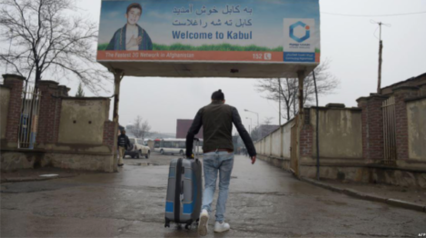 |
On Thursday, Amnesty International (AI) released a report alleging that European countries are deporting thousands of denied asylum seekers back to Afghanistan, where they are at a high risk of human rights abuses, kidnapping, and death. According to official European Union statistics, the number of Afghans deported increased from 3,290 in 2015 to 9,460 in 2016, a nearly 300 percent increase. Some of those being returned to Afghanistan include unaccompanied children, asylum seekers who were children when they entered Europe, and Christian converts who are at a higher risk for persecution, torture, and death. AI attributes the deportations to the need of European governments to respond to increased anti-immigrant sentiments among their citizens. Comment: The European countries that are deporting the most Afghans are Germany, Greece, Sweden, the UK, and Norway. Amnesty International argues in their report that these countries do so knowing that Afghanistan is unstable, citing UN reports that 2016 was the deadliest year on record in Afghanistan for civilians. (Guardian, Radio Free Europe, Reuters, Amnesty International)
Researched/Written by Amy Pipher
|
|
|
|
|
|
This week in the Middle East & North Africa
|
|
|
|
|
EGYPT: U.S. suspends aid to Egypt after UN uncovered Egyptian attempt to purchase massive North Korean arms cache
On Sunday, the Washington Post revealed that Egypt port authorities at the Suez Canal in August 2016 seized 30,000 North Korean rocket-propelled grenade launchers were actually ordered by Egyptian businesses for use by the Egyptian military. Moreover, U.S. officials confirmed to the Post that the suspension of USD 300 million in military aid to Egypt over the summer was in response to this arms shipment. The UN described it as the “largest seizure of ammunition in the history of sanctions against [North Korea],” totaling more than USD 23 million. U.S. intelligence foiled the deal by warning Egyptian custom agents of a North Korean freighter flying Cambodian colors with a mysterious cargo hidden by heavy tarps headed toward the Suez Canal, compelling Egyptian authorities to act. The resulting investigative probe by the UN into the stockpile over the past year uncovered the true origins of the arms shipment and helped to shed light on the shadowy global arms trade North Korea relies on to combat economic sanctions. Comment: The Trump administration decided to freeze and delay military aid to Egypt in July, citing Egypt’s human rights track record. While U.S. officials have declined to criticize Egypt over the incident publicly, the revelations caused diplomatic turbulence between the two countries behind closed doors. The UN reported that Egypt destroyed the munitions under UN supervision in February, and it remains unclear if the North Koreans received payment from their Egyptian counterparts. (Al Jazeera, Haaretz, Washington Post)
|
|
|
|
|
|
PALESTINE: Fatah and Hamas move toward reconciliation in Gaza
|
 |
On Tuesday, the Palestinian cabinet headed by Prime Minister Rami al-Hamdallah held its weekly meeting with dozens of senior intelligence and security officials in Gaza City for the first time since 2014. Gazans met the delegation with fanfare upon their arrival on Monday as part of a comprehensive reconciliation effort between the two Palestinian factions promoted by Egypt. The cabinet meeting, facilitated by a senior delegation of Egypt’s intelligence agency, discussed transitioning government ministries from Hamas to Palestinian Authority ministers. More complicated discussions will be conducted next week in Cairo, such as responsibility for Gaza’s security and managing Gaza’s border crossings. If all goes well, Palestinians could see a unified leadership for the first time in a decade, which could help leverage their push for an independent state. Israeli Prime Minister Binyamin Netanyahu said in a press conference that Israel adamantly opposes any reconciliation deal which keeps Hamas leadership intact in the unity government. Comment: Hamas and Fatah have been at odds with each other since 2007 when the Palestinian Authority failed to wrest control from Hamas in the Gaza Strip after they won local elections. Hamas recently agreed to transfer authority of the Gaza Strip to Fatah after President Mahmoud Abbas imposed harsh restrictions on Hamas over the summer, including suspending electricity payments and reducing government salaries. (Al Quds, BBC, New York Times, AP, Reuters)
|
|
|
|
|
|
IRAQ: Iraq, Turkey, and Iran initiate military maneuvers on Kurdish borders in wake of referendum
Over the weekend, Baghdad, Ankara, and Tehran increased their posturing over the semi-autonomous Kurdish region over their referendum for independence last Monday. Iraqi Prime Minister Haider al-Abadi suspended international flights to Kurdistan’s two international airports and closed major highways linking Kurdistan to the rest of Iraq. Abadi also tweeted that oil revenues and borders in Iraqi Kurdistan should return to Iraqi federal control, but has yet to act on this declaration. Turkish Prime Minister Erdogan stated that the Kurdish referendum poses a “direct threat to Turkey’s national security” and is threatening to close its shared border with the semi-autonomous region, of which Kurdistan relies heavily on imported goods, food, and oil exports. Ankara is currently conducting military maneuvers on the Turkish-Kurdish borders with the Iraqi military, and Baghdad has a planned joint military exercise with Tehran along their border next week aimed at securing Iraqi control of three Kurdish crossings into Iran. Comment: Iraqi Kurds overwhelmingly backed independence in a referendum last week, defying the international community and alarming neighboring countries which fear the vote could fuel Kurdish separatism within their borders and lead to conflict. Kurdish authorities insist the referendum only opens the door for negotiations with Baghdad over the possibility of independence. While maintaining they are still part of Iraq, the KRG has remained defiant over Baghdad’s pressure to relinquish Kurdish authority over the region. (Twitter, Al Monitor, Independent, New York Times, Reuters)
Researched/Written by Zachary Libow
|
|
|
|
|
|
BANGLADESH: UN allocates USD 12 million in emergency relief to aid Rohingya refugees
On Tuesday, Emergency Relief Coordinator and Under-Secretary-General for Humanitarian Affairs Mark Lowcock announced that the United Nations Central Emergency Response Fund (CERF) has released USD 12 million to aid the Rohingya refugees fleeing Myanmar to host communities in Bangladesh. The humanitarian move comes after UN officials and diplomats toured the Rakhine State in Myanmar on Monday, where most of the violence is taking place. The money will allow humanitarian services to better provide food, water, sanitation facilities, and medical help to those in refugee camps in Bangladesh. Comment: According to the UN Office of Humanitarian Affairs, more than 500,000 Rohingya refugees have fled to Bangladesh from Myanmar since August 25. Bangladesh is struggling to support the refugees, currently clearing forests to make room for 150,000 more shelters. Tuesday’s allocation of funds brings the total amount of support from CERF to USD 19 million. (The Daily Star, EWN, Voice of America, UN News Centre, UNOCHA)
|
|
|
|
|
BANGLADESH/INDIA: USD 4.5 billion loan deal will support economic and social development in Bangladesh
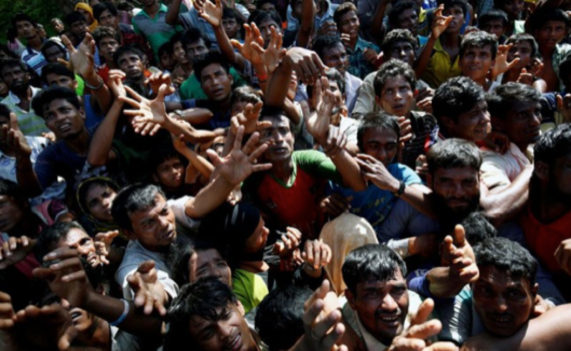 |
|
On Wednesday, Bangladesh and India signed a USD 4.5 billion loan deal, initiating an Indian Line of Credit (LoC) that will enable the implementation of 17 pre-identified development projects in key sectors of infrastructure, such as power, railways, roads, and shipping. Along with this agreement comes the stipulation that Bangladesh purchase 65-75 percent of all services, goods, or works from the Indian market with the money. Comment: According to the Indian Minister of Finance and Corporate Affairs, this deal signifies India-Bangladesh relations are at their all-time best. As with previous Line of Credit agreements, Bangladesh will pay an interest rate of one percent per annum over a period of 20 years, inclusive of a five-year moratorium. This LoC is the biggest one provided by India to any country, and is likely an attempt to counter China’s increasing influence in the region. (The Daily Star, Dhaka Tribune, The Hindu, Financial Express)
|
|
|
|
|
|
NEPAL: Three communist parties agree to unification ahead of elections
On Tuesday, the leaders of Nepal’s three communist parties – the Maoist Center (CPN-M), the Communist Party Nepal-Union Marxist Leninist (CPN-UML), and the Naya Shakti Party – announced they will be forging an electoral alliance and unify into one common party. A six-point agreement was signed in Kathmandu and a joint committee has been created to coordinate the process and to establish a joint manifesto coinciding with upcoming elections in November and December. The unifying parties aim to secure a two-thirds majority in Parliament as a result of the merger and elections. Comment: According to reports from The Hindustan Times, some in Nepal believe the move is being orchestrated by Beijing, while the communist party leaders insist the merger is for the benefit of all Nepalese people. The announcement is being widely seen as a unexpected political event. (Online Khabar, Republica, The Hindu, Hindustan Times)
Researched/Written by Natalie A. Landau
|
|
|
|
 |
|